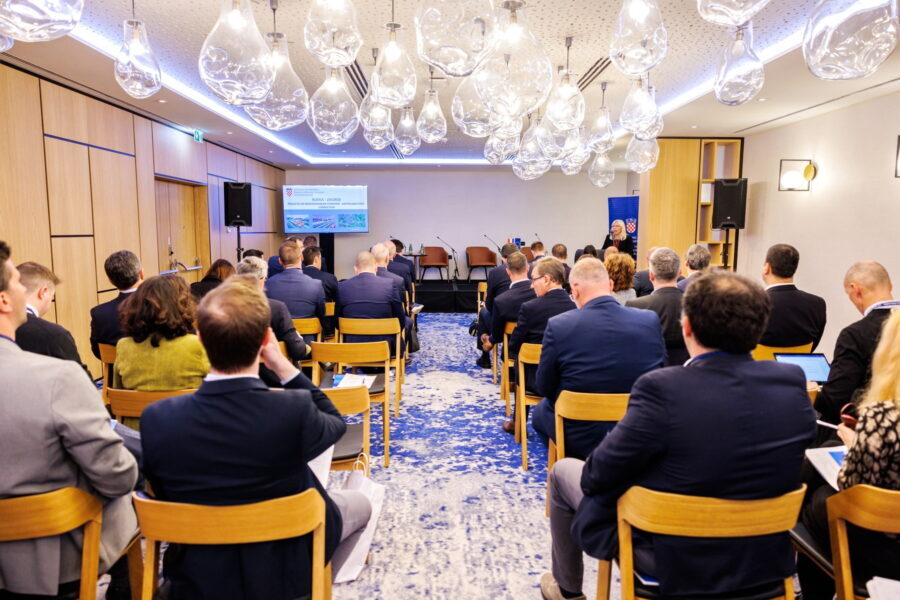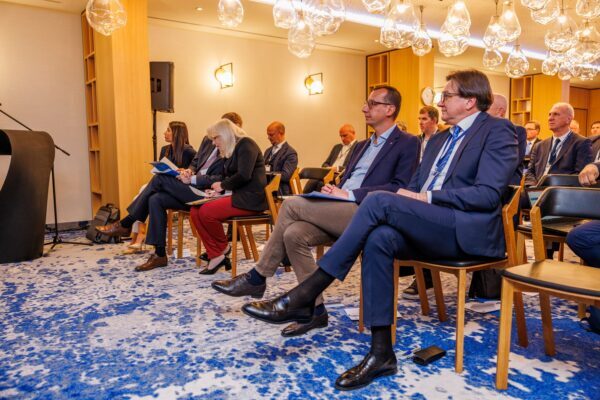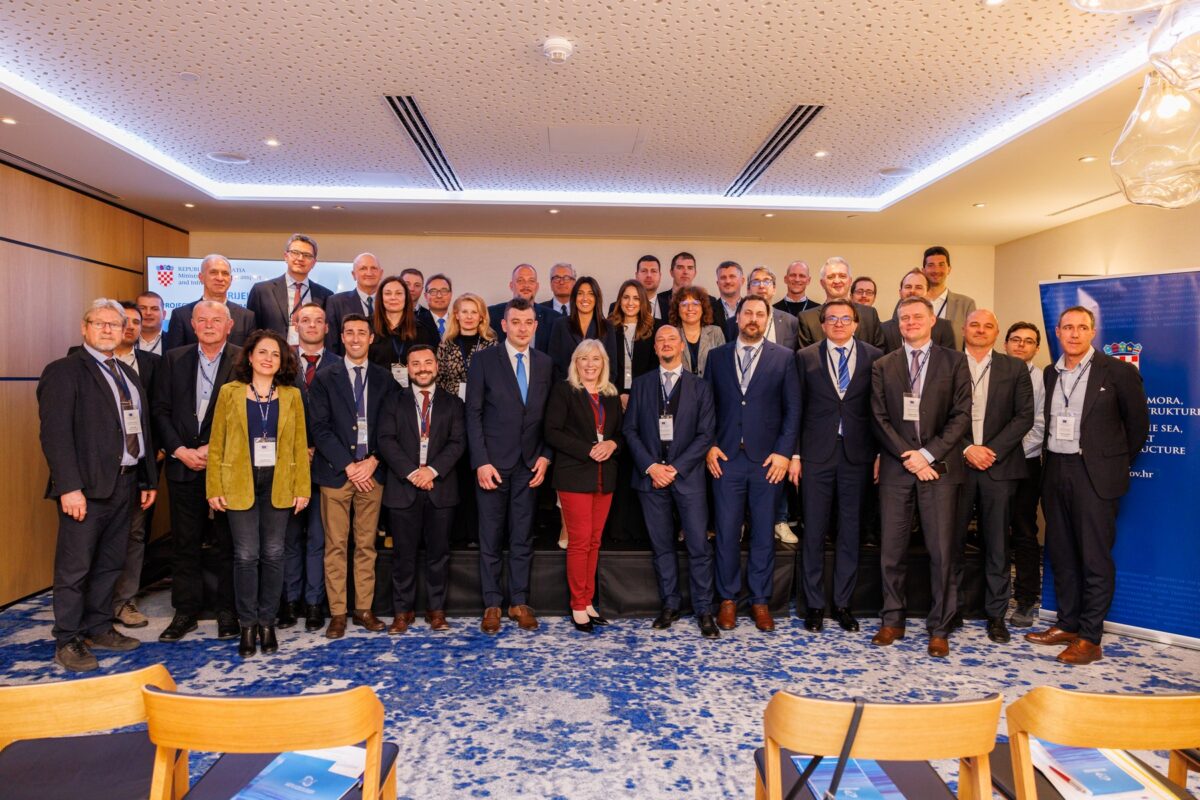
The conference of the Working Group on the ports of the Mediterranean Corridor organised by the Ministry of the Sea, Transport and Infrastructure of the Republic of Croatia and the Port of Rijeka Authority was held in the congress part of the Hilton Costabella Hotel in Rijeka.
The Working Group on the ports was established by the General Directorate for Mobility and Transport of the European Commission for the Mediterranean Core Network Corridor of the TEN-T and it brings together representatives of all countries through which the Mediterranean corridor runs from Spain, France, Italy, Slovenia, Croatia and Hungary, as well as representatives of the stakeholders of the transport system (railway, road, sea and airport).
Connecting the core network of transport infrastructure with trans-European networks and corridors is one of the basic goals and an important prerequisite for the even development of all EU members. Therefore, while striving to increase the number of its members, the EU makes sustained efforts to enable the construction of necessary roads and integrate national road networks into the single Trans-European Transport Network (Trans – European Network – Transport, TEN-T). By creating such a European transport network, bottlenecks would be removed and more distant regions would be connected in the common transport system.

The Working Group on the ports of the Mediterranean Core Network Corridor (souce: Port of Rijeka Authority)
The opening address was given by Mrs. Iveta Radičova, European coordinator for the Mediterranean Core Network Corridor and Mr. Damir Šoštarić, Director of the Directorate for EU Funds and Strategic Planning of the Ministry of the Sea, Transport and Infrastructure of the Republic of Croatia. The event was also attended by the mayor of Rijeka, Marko Filipović.
During the working meeting and the round table current topics were presented relating to joint activities, different views, experiences and challenges with the aim of improving the quality of one of the core freight corridors in the European Union. The representatives of port authorities and ports on the Mediterranean corridor who spoke at the conference were Antonio Revedin, Strategic Planning and Development Director of the Venice Port Authority, Charles Rua, Head of the Innovation Department of the Port of Barcelona and the joint representative of the port authorities of Barcelona, Algeciras and Valencia, Alexandre Sánchez, Port Community system manager of the Port Authority of Valencia, Jesús Medina, Chief Information & Innovation Officer of the Port Authority of Algeciras, Borut Čok, Head of the strategic Development area of the Port of Kopar, Philippe Guillaumet, International Relations Manager of the Port of Marseille and Marko Boban, Head of Service for Strategic Planning and Project Development, the Ministry of the Sea, Transport and Infrastructure of the Republic of Croatia.

The Working Group on the ports of the Mediterranean Core Network Corridor (photo: Port of Rijeka Authority )
Let us remind you that, the European Commission adopted the decision on 18 October 2013 whereby determining nine corridors of the core EU Transport Network as an axes for connecting 94 main European ports and 38 key airports with railways and roads in the capitals of European countries (the Port of Rijeka and Zagreb Airport are included), and the development of 15 thousand kilometres of railway infrastructure capable of achieving satisfactory speeds for passenger and freight trains, as well as 35 border crossings. These nine corridors are a priority of the EU transport policy, therefore an additional financial fund worth EUR 26 billion was established called CEF (Connecting Europe Facility), under which the member states, in addition to the existing structural and cohesion funds, can also finance projects on these corridors following tenders to be published by the European Commission.
Croatia is located on two corridors of the Core Transport Network: the Mediterranean Corridor and the Rhine-Danube Corridor. The Mediterranean Corridor connects the south of the Iberian Peninsula, it follows the coastlines of Spain and France and crosses the Alps towards the east through Italy, Slovenia and Croatia and continues through Hungary up to its eastern border with Ukraine.
It is a road and rail corridor, and its integral part is the route Rijeka-Zagreb-Budapest, i.e. the rail and road route, in our country generally known as the Vb corridor.
The Committee for Transport and Tourism of the European Parliament recently accepted all proposals for changes to the Trans-European Transport Network (TEN-T), which would connect a number of Croatian roads and railways to the TEN-T network. One of the most significant changes is the inclusion of Rijeka, i.e. the port of Rijeka, that is already in the Mediterranean corridor, in the Baltic-Adriatic route, with the intention of including Rijeka, in the third one, in the Western Balkans. These changes, which envisage the construction of numerous connections to the European transport network, if accepted by the European Parliament, the Commission and the Council of Europe, in the procedure that is about to start this week, would give Croatia access to up to EUR 26 billion under the Connecting Europe Facility.

